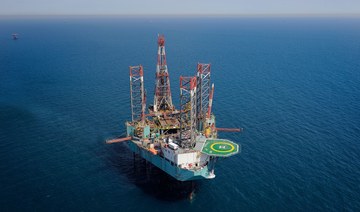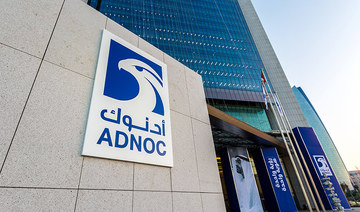RIYADH: On the back of a strong first-quarter performance, ADNOC Drilling plans to go big on its expansion strategy as it eyes 20 percent year-on-year growth in revenue this year.
As a sole drilling partner to Abu Dhabi National Oil Co., ADNOC Drilling launched a bold fleet expansion program to enable the energy giant achieve its production targets.
In an interview with Arab News, the CEO of the Middle East’s largest national drilling company, Abdulrahman Abdulla Al-Seiari, said they grew the fleet by 16 rigs in 2022, bringing the total to 115.
“We will add a further 27 rigs by 2024, bringing our fleet to 142 rigs, and with these additional rigs will come additional revenue,” he told Arab News.
Sharing the financial projections for the rest of the year, Al-Seiari said they expect to make a total revenue of between $3 and $3.2 billion in 2023.
“We guided the market to expect EBITDA in the range of $1.35 to $1.5 billion with a margin of 45 percent to 47 percent. We will see record net income between $850 million and $1 billion,” he said.
This comes after the drilling firm recorded a 19 percent year-on-year growth in revenue to $716 million in the first quarter.
Its net income increased by 25 percent year-on-year to $219 million, which Al-Seiari said “clearly demonstrates the success of our strategy to expand both our drilling fleet and our service offering.”
He attributed this rise in revenue to ADNOC’s accelerated production capacity growth which he said, “directly translates into an acceleration of drilling activity.”
SPEEDREAD
• ADNOC Drilling said its OFS capabilities offer comprehensive drilling and completion services that span the entire drilling value chain.
• The business division has helped the firm create considerable savings in well time and cost while delivering better well economics, ensuring cost-effective services.
• The drilling firm looks to play a key role in helping ADNOC achieve its target of reducing carbon intensity by 25 percent by 2030.
“To enable this growth, we are growing our drilling fleet to deliver the wells required. When these rigs go onto our long-term contracts, they provide long-term cashflow and earnings visibility to shareholders while providing protection from market volatility,” he explained.
ADNOC Drilling’s oilfield services business has also significantly grown in recent years and in the first quarter of 2022, the company achieved record OFS revenue of $123 million.
Continuing that rapid expansion, the CEO said the segment grew by a massive 43 percent in the first quarter of 2023 to $126 million. The company attributed the growth to increased activity volume across the entire portfolio.
ADNOC Drilling said its OFS capabilities offer comprehensive drilling and completion services that span the entire drilling value chain.
The business division has helped the firm create considerable savings in well time and cost while delivering better well economics, ensuring cost-effective services.
Talking about the growth prospect of the drilling industry, Al-Seiari said: “It is in very good shape in the UAE.”
While ADNOC’s production capacity growth will deliver big gains for ADNOC Drilling in the short term, he said it plans to unlock Abu Dhabi’s “unconventional” oil and gas reserves and deliver gas self-sufficiency for the UAE that will “cement long-term earnings potential.”
“We are the key enabler of gas self-sufficiency and will drill the thousands of wells needed to access the trillions of standard cubic feet of recoverable unconventional gas resources.”
Strong order book
Since its initial public offering in October 2021, the company has secured more than $12 billion in contract backlog. In April 2023, it won another contract for integrated drilling services worth $412 million — the first of a number of anticipated significant awards in 2023.
Talking about their future plans, Al-Seiari said they are “hugely ambitious” and are constantly evaluating opportunities for growth.
“The pipeline of opportunities in Abu Dhabi is vast and remains our number one priority; however, the expansion of operations beyond our borders is a component of our mid-to-long-term strategy.”
Decarbonization plan
The drilling firm, which claims to have the world’s longest well with a total length of 50,000 feet, looks to play a key role in helping ADNOC achieve its target of reducing carbon intensity by 25 percent by 2030.
“We are 100 percent committed to the delivery of maximum energy with minimum emissions,” said the CEO. Explaining the company’s decarbonization plan, Al-Seiari said it rests on three broad streams of complementary activity which include continually driving greater efficiencies, minimizing the emissions of the drilling fleet, and addressing emissions associated with the global supply chain.
“We are adding batteries to our fleet so providing hybrid power. These hybrid-powered drilling rigs can reduce emissions by up to 15 percent. Additionally, we are connecting our rigs to the grid where infrastructure allows,” he said.
ADNOC Drilling is also supporting local manufacturing and procuring equipment and services from within the UAE — a move that helps the firm decarbonize its supply chain.























